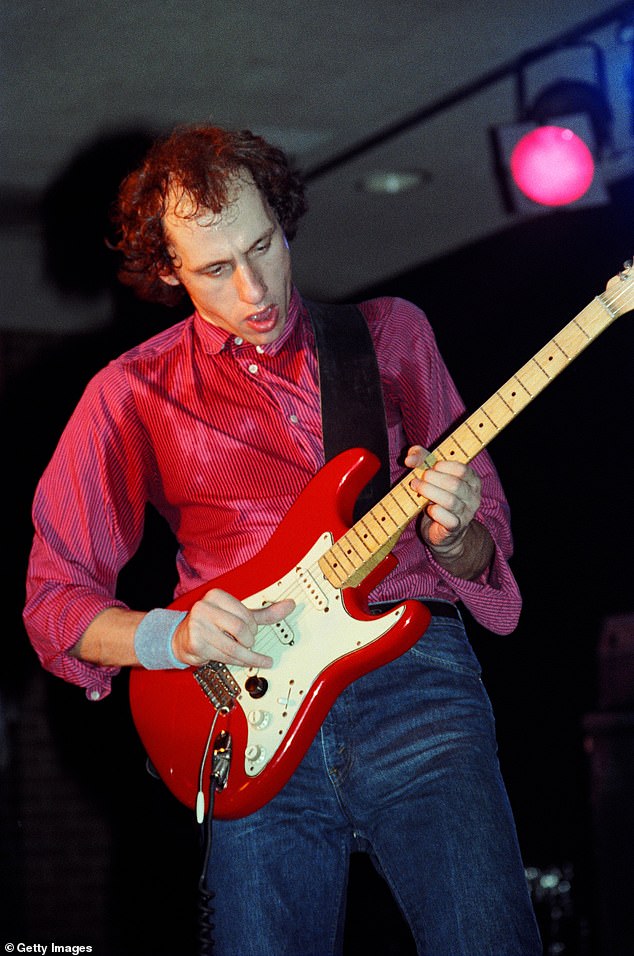Legendary Dire Straits guitarist Mark Knopfler has revealed a surprising inspiration behind his distinctive playing style: a childhood spent strumming a tennis racket.
In an interview with BBC Radio 4's Desert Island Discs, the 74-year-old musician explained that his left-handedness led to an unusual approach to playing the guitar. While pretending the racket was a musical instrument, his older sister intervened, instructing him to hold it the "correct" way â a right-handed grip.
Knopfler credits his sister Ruth for this pivotal moment, stating, "We had these dodgy little tennis rackets that you could get for not very much money, we used to use the tennis racket as a guitar... I was playing it, I was pretending it was a guitar, and she turned it round so that I was holding it right-handed, and she said that's the way you play it."
This unconventional approach, with his stronger hand forming the notes while playing a right-handed guitar, ultimately provided Knopfler with a unique advantage. He describes gaining "a little bit of flexibility" and the ability to perform a vibrato â bending the strings vertically â on "two or three strings at a time."
Knopfler's unorthodox technique has undeniably contributed to his iconic sound, which has captivated audiences worldwide. As the driving force behind Dire Straits, he achieved immense success with five UK top ten singles and four No 1 albums, including global hits like "Money For Nothing" and "Sultans Of Swing."
While Knopfler's musical journey began with a simple tennis racket, it has culminated in a career filled with accolades and a place amongst the most respected guitarists of all time. His story is a testament to the power of perseverance, ingenuity, and the influence of family, highlighting how even seemingly mundane experiences can inspire creative brilliance.
You can hear Mark Knopfler's full interview on BBC Radio 4's Desert Island Discs, airing today at 10am.
Article
Entertainment

From Tennis Racket to Guitar Legend: Mark Knopfler's Unconventional Playing Style

